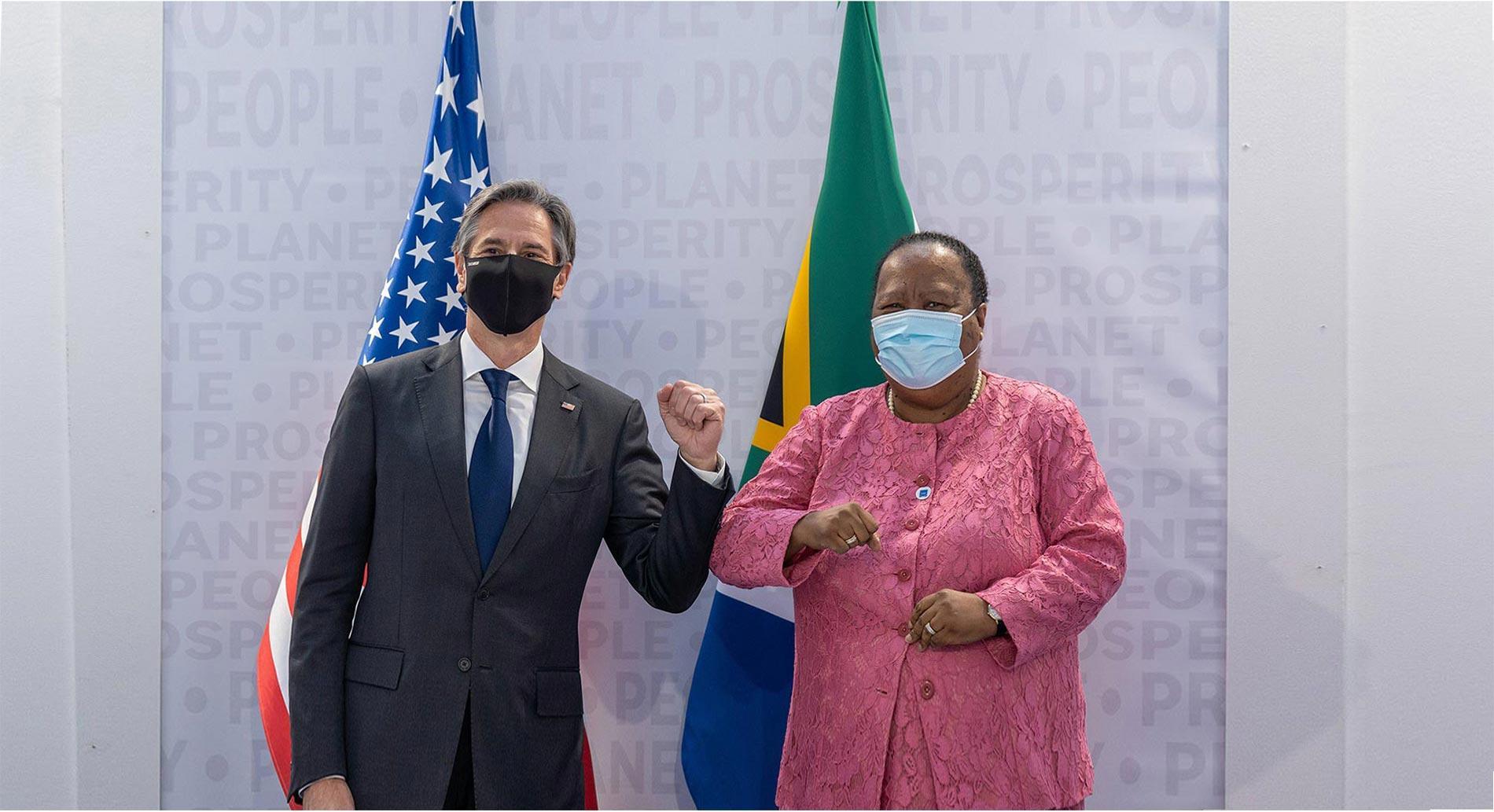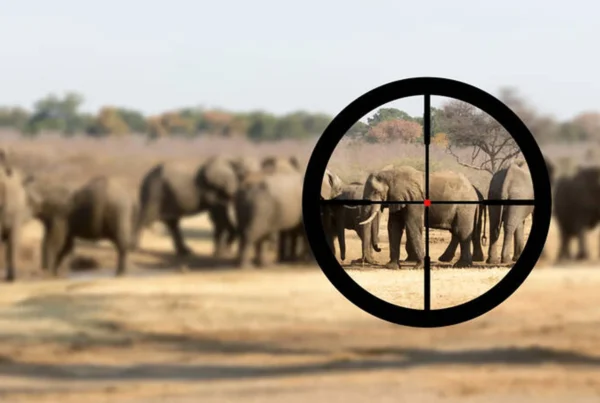US’ geopolitical rivalry on the African continent, particularly when it comes to China and Russia is clearly visible in Biden’s new much-anticipated Africa strategy.
Michael Asiedu, 26 September 2022
On 8 August, US Secretary of State Antony Blinken delivered a much-anticipated strategy for Africa at the University of Pretoria. His speech focused on the significance of sub-Saharan Africa’s geopolitics to US national security interests. This strategy reflected how the US is seeking to prioritize its engagement with Africa. In the past, the US has prioritized Europe and Asia over Africa in US policymaking.
The four-pronged strategy is carved around the promotion of openness and open societies; advancement in democracy and security; facilitation in pandemic recovery and widening of economic opportunities; and cooperation of conservation efforts, climate adaptation as well as a just energy transition.
At the onset, the strategy had a cooperative tone and sought to reboot US policy priorities, such as peace and security, trade and investment, democracy and development, as non-negotiable routes to both Africa’s progress and agency in helping solve global challenges alongside the United States. This new strategy under President Biden is in stark contrast to the Trump administration’s perceived aloofness when it comes to African agency in tackling global challenges, with Secretary Blinken indicating the continent to be “critical in advancing US global priorities.”
Ostensibly visible in the strategy, however, was the US’ geopolitical rivalry on the African continent, particularly when it comes to China and Russia. Delivering the strategy on African soil and in South Africa was significant, especially pertaining to Russia and its invasion of Ukraine, but why so?
In March 2022, the US had a re-awakening in terms of its relations with Africa. At a UN General Assembly vote that sought to condemn Russia’s invasion of Ukraine, nearly half of the countries that refused to condemn Russia were African. South Africa was among these 17 countries that chose to abstain from the vote rather than condemn the invasion.
Additionally, earlier in the month, South African Foreign Minister Naledi Pandor, who had previously taken part in the re-launch of US-South African Dialogue, an initiative that was put on hold during the Trump era, had decried the US House of Representatives passing of a bill that concerned Russia’s influence in Africa. Foreign Minister Pandor indicated that the passage of such a bill was only “intended to punish countries in Africa that had not toed the line on the Russia-Ukraine war.”
In yet another (un)subtle reference to Russia’s presence in Africa, the strategy goes on to brand it as seeing the African continent as “permissive environment for parastatals and private military companies, often fomenting instability for strategic and financial benefit.” This was in reference to the Wagner Group, a Kremlin-backed private military company with operations in the Sahel, Mali, and Central African Republic. A claim which Russia has consistently denied.
Further, Secretary Blinken’s visit to Africa comes days after Russian Foreign Minister Sergei Lavrov had visited the continent in July 2022. Frankly put, Secretary Blinken’s visit could be interpreted as a call to a hesitant continent to vouch for the US-backed international order.
Moreover, US diplomats even offered a more explicit warning to African countries about engaging with Russia. Despite the strategy indicating that the US is not in Africa “to order African countries around,” US Ambassador to the UN Linda Thomas-Greenfield warned on her visit to Uganda in early July that African countries “risked sanctions” in terms of their dealings with Russia. Ambassador Thomas-Greenfield said, “African countries can purchase Russian agricultural products including fertilizer and wheat, however, if a country dealt with Russia in areas where there were sanctions, then those countries would be said to be breaking those sanctions too and stood the chance of having sanctions taken against them too,” essentially, warning African countries against violating US sanctions on Russia. African companies and individuals could also be subject to secondary sanctions if they are deemed to violate US sanctions on Russia.
Unsurprisingly, another geopolitical rivalry that lingered in the background of the US’ new strategy was China. The strategy attempted to contend with China’s increasing influence in Africa without depicting African countries as geopolitical pawns. “Too often, African nations have been treated as instruments of other nations’ progress rather than authors of their own. Time and again, they’ve been told to pick a side in great-power contests that feel far removed from daily struggles with their people…” said Blinken. The US accuses the Chinese government of working to “advance its own narrow commercial and geopolitical interests, undermine transparency and openness and weaken US relations with African people and governments.”
In 2020 alone, Chinese infrastructure investments on the continent accounted for 31%, with a value of around USD 50 million, according to Deloitte. China’s Belt and Road Initiative continues to be relatively successful in Africa. Blinken’s promotion tour portrayed the US as the better alternative for Africa. According to a senior US official this strategy is “rooted in the recognition that sub-Saharan Africa is a major geopolitical force.”
Another vital geostrategic aspect of the US new strategy is the “just energy transition”. The US has suggested “work[ing] closely with African countries as they uncover how best to meet their specific energy needs, which involved pursuing energy access and economic development goals through alternatives, such as renewable energy as well as gas to power infrastructure.”
As Europe looks to alternatives to Russian energy following the invasion of Ukraine, there is already a strong push back from African countries, prominently coal-rich South Africa, against efforts to phase out fossil fuels. Again, African countries are skeptical when it comes to conversations surrounding energy sources and the climate crisis as they bear the greatest cost in terms of receding water bodies, famine etc. Countries such as the US and China are the world’s largest carbon emitters.
While other areas of the new strategy, such as how the US is seeking to work closely with African countries and the African Union on post-pandemic recovery, arresting democratic backsliding and increasing security measures to fight insurgent groups on the continent, suggest that the Biden administration has adopted a more cooperative strategy in Africa, the US’ geopolitical rivalry with Russia and China was the elephant in the room as Secretary Blinken delivered his speech.







